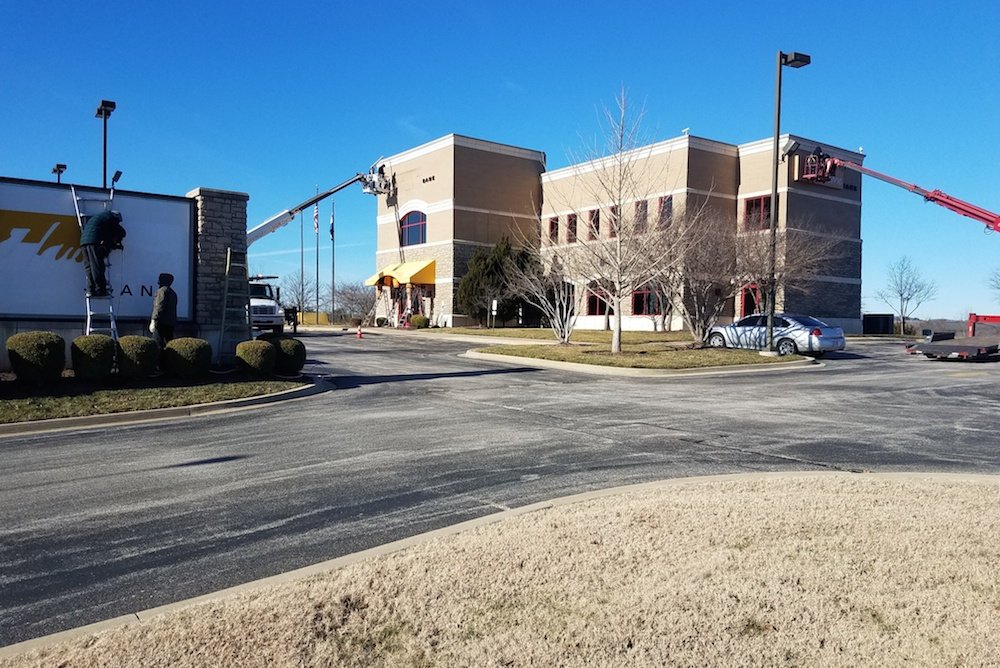YOUR BUSINESS AUTHORITY
Springfield, MO
YOUR BUSINESS AUTHORITY
Springfield, MO

A former Hawthorn Bank branch opened this morning as Branson Bank after a purchase agreement signed last fall was completed.
Branson Bank and Jefferson City-based Hawthorn Bancshares Inc. (Nasdaq: HWBK) finalized the purchase of the branch for undisclosed terms on Feb. 9, following the green light from both companies’ boards and regulatory approval, according to a news release.
“This acquisition addresses several of our strategic objectives, namely better accommodation of continuing growth,” Branson Bank President Bill Jones said in the release. “This purchase will allow our organization to centralize bank functions and it will create more efficient workflows, resulting in even better customer service and support.”
The former Hawthorn Bank branch — located at 4675 Gretna Road — becomes Branson Bank’s fourth full-service location. The company operates two other branches in Branson and one in Forsyth. It also has a lending center in Branson West, according to its website.
Through the purchase, announced in October, Branson Bank took control of roughly $15 million in deposits via 900 accounts. An undisclosed amount of loans were not included in the sale, according to past Springfield Business Journal reporting.
Branson Bank has roughly $210 million in assets, according to the release. Its deposits were $175.2 million as of June 30, according to Federal Deposit Insurance Corp. data.
Hawthorn Bancshares recently reported 2018 net income of $10.7 million, up from $3.4 million in the prior year, according to a separate news release. It has 21 locations.
HWBK shares were trading at $22.94 as of 10:21 a.m., compared with a 52-week range of $19.23 to $24.88.
Alair Springfield is first Missouri franchise for Canada-based company.